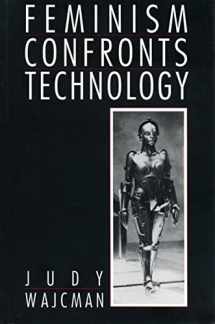
Feminism Confronts Technology
Book details
Summary
Description
In the first major study of its kind, Judy Wajcman challenges the common assumption that technology is gender neutral and analyzes its influence on the lives of women.
Does technology liberate women and encourage equality, or are the new technologies reinforcing sexual divisions in society? Does the problem lie in men's monopoly of technology, or is technology itself in some sense inherently patriarchal? To answer these questions, Judy Wajcman explores what the impact of technology is on the lives of women today.
Popular stereotypes depict women as technologically incompetent or invisible in technical spheres. Wajcman argues that the identification between men and machines is not immutable but is the result of ideological and cultural processes. She surveys sociological and feminist literature on technology, highlighting the male bias in the way technology is defined as well as developed.
Over the last two decades feminists have identified men's monopoly on technology as an important source of their power, women's lack of technological skills as an important element in their dependence on men. During this period, women's efforts to control their fertility have extended from abortion and contraception to mobilizing around the new reproductive technologies. At the same time there has been a proliferation of new technologies in the home and in the workplace. The political struggles emerging around reproductive technology, as well as the technologies affecting domestic work, paid labor, and the built environment, are the focus of this book.


We would LOVE it if you could help us and other readers by reviewing the book
Book review



